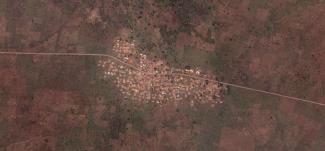SDGs
Official statistics must improve

Developing countries have a persistent problem regarding statistics. International institutions and governments alike cannot accurately assess progress towards the Sustainable Development Goals (SDGs) without the help of trained personal on the ground collecting reliable data. Presently, several organisations are rising to this challenge. One of them is the UN Office for Coordination of Humanitarian Affairs (OCHA).
As OCHA officer Kareem Elbayar reports, one of the greatest problems facing many SDG stakeholders is the lack of data. OCHA has created an extensive data-exchange network, which has over 400 global partners who have helped create around 6,000 datasets; the New York Times being a prominent user. Elbayar says, “the goal of OCHA is to freely spread data for everyone everywhere”.
The idea is to build a trusted framework and set something like baselines to measure SDG progress, Elbayar told a UN-hosted conference on the SDGs in March. This framework could give stakeholders the needed information to draft more effective policy.
The greatest challenge, according to the UN official, is to gather the information that will later prove useful. That is not always an obvious task. Elbayar cited the Rohingya refugee crisis in Myanmar and Bangladesh as a prime example of authorities and relief organisations lacking reliable data to fully diagnose a disaster. “The goal for data collection is that no group should be left behind,” Elbayar reports.
Modern satellite mapping technology, GPS for example, can help non-governmental organisations (NGOs) to accurately send aid to where it is needed most. Joachim Post of Germany’s space agency DLR (Deutsches Zentrum für Luft- und Raumfahrt) says: “Combining modern technology for the purposes of data-collection to maximise relief efforts is what we want to accomplish.” Post hopes relevant information will be made available to anyone concerned via a wider data grid. That could help developing countries create and manage reasonable base-lines for achieving the SDGs.
Satellite images can help to assess the quality of the regional school infrastructure, but Catherine Blampied of the Oversees Development Institute (ODI), a London based think-tank, insists that more trained statisticians are needed on the ground: “It is difficult to trust some of the local statistics agencies, because they usually are not collecting high-quality data.” More funding is needed to attract professionals to remote areas.
The scholar has been working on creating quasi-base-lines since 2016. So far, her case studies concern Ghana, Kenya and Nepal, focusing on projects relating to health, education and infrastructure. Blampied explains that, “during the initial collection process I discovered many regions had little to no aggregated or disaggregated data regarding the desired metrics.” The biggest disparities were between urban and rural communities.
In Ghana, for example, education is the government’s top priority, with public expenditures exceeding 25 %, Blampied reports. Yet, even with the vast amount of money being spent on education, there is still a large gap in data to accurately measure learning outcomes. According to the scholar, “18 % of children, in particular girls, in northern Ghana are not presently attending school, while the national average is just four percent”. Blampied surmises that this disparity is because northern Ghana is predominantly rural and less developed than urban areas in the south.
Another pressing issue is the lack of data on marginalised groups, including the lesbian, gay, bisexual, transgender and intersex (LGBTI) community. Justus Eisfeld of the UN Development Programme (UNDP) says, “44 % of the world population lives in countries where being in the LGBTI community is illegal or severely punished.” Discrimination makes data collection difficult everywhere, however. As Eisfeld admits, the data situation concerning sexual minorities is not good in advanced nations either because stigmatised people tend not to respond honestly in representative surveys.













